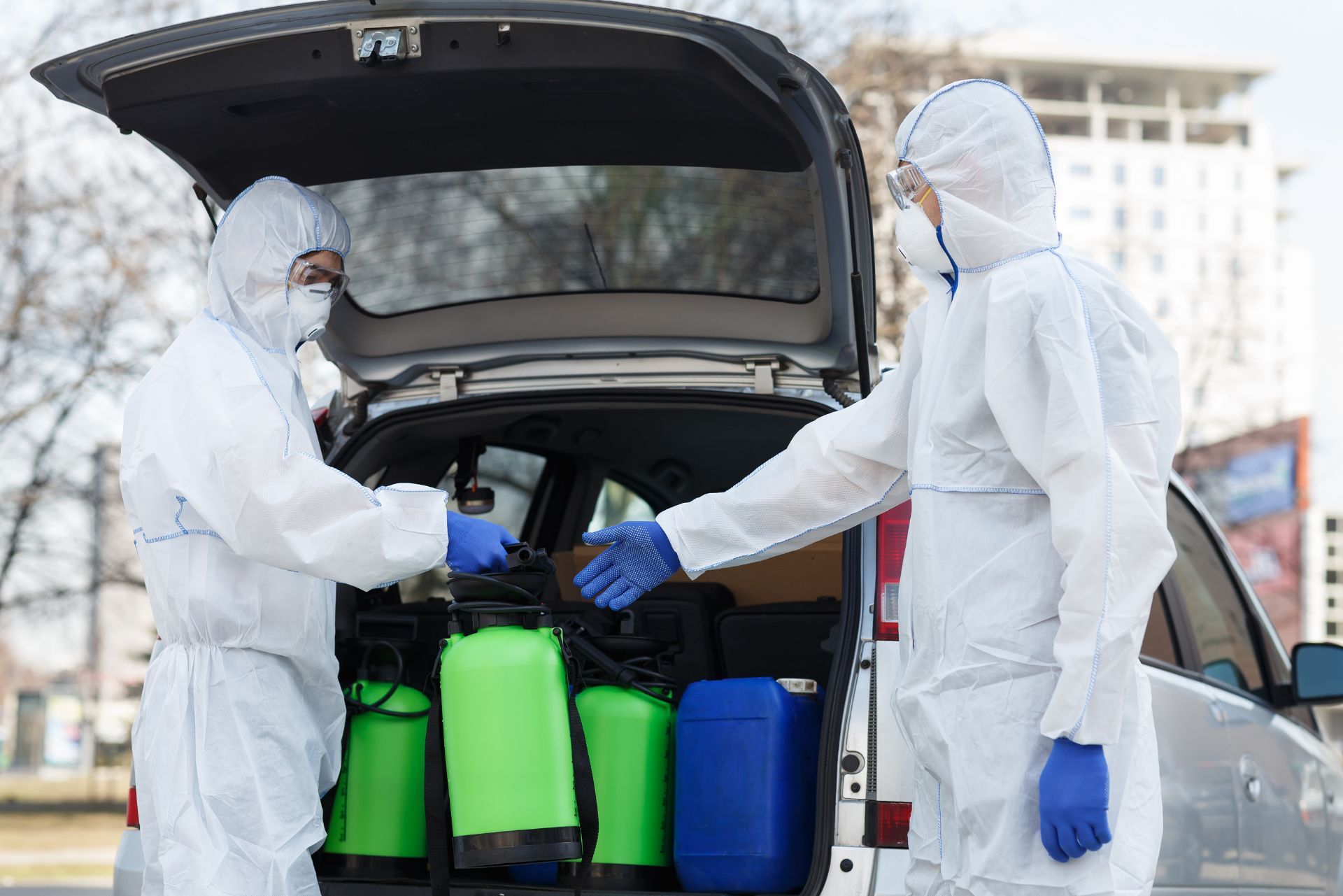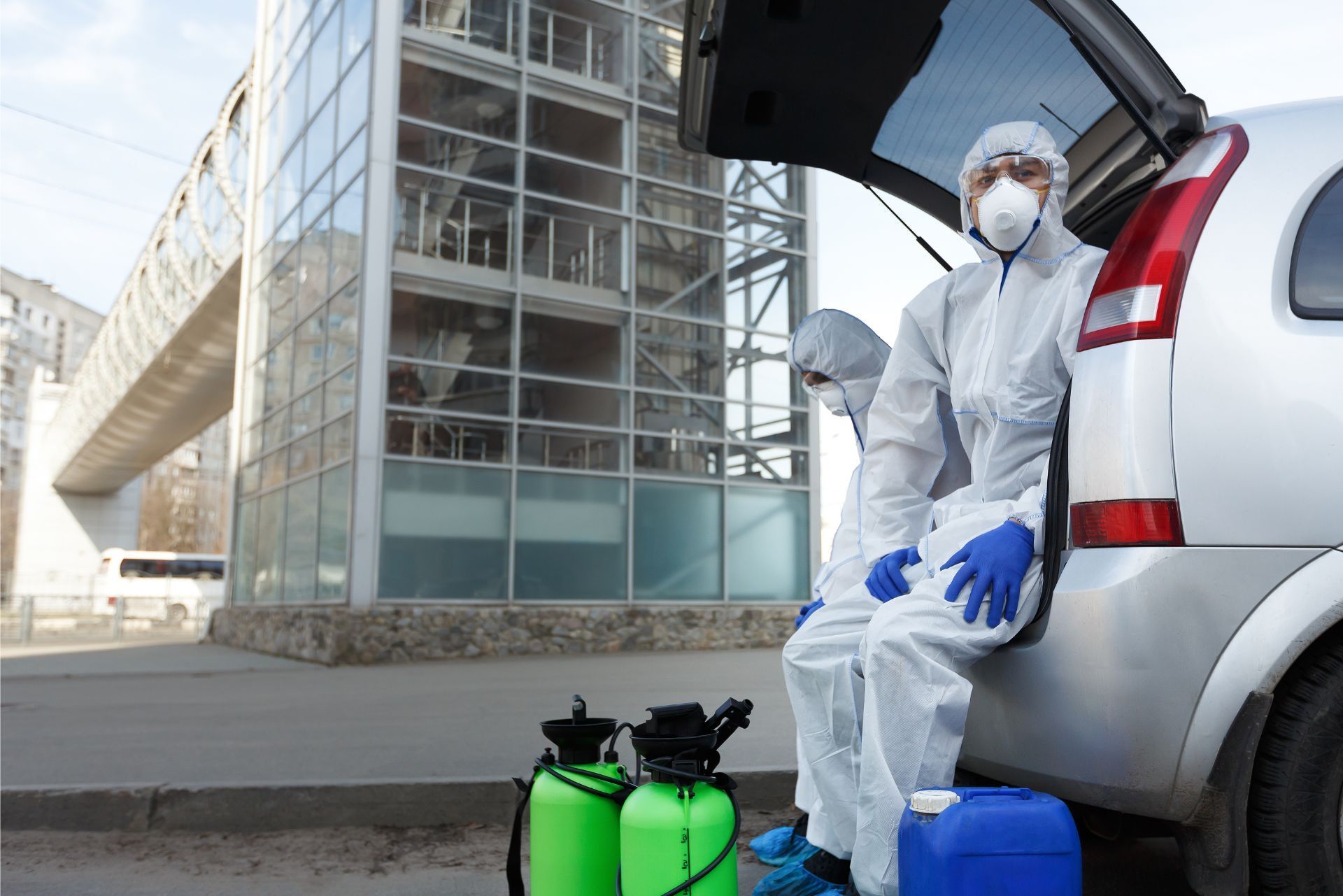Operating a pest-control business in Florida comes with unique challenges, from unpredictable weather to strict regulatory requirements. One critical aspect that often gets overlooked is securing the right insurance for your pest-control trucks. These vehicles are the backbone of your operations, carrying essential equipment and chemicals, and navigating busy roads daily. Without proper insurance, you risk significant financial loss from accidents, theft, or liability claims.
This comprehensive guide explores the ins and outs of Florida pest-control truck insurance, covering costs, coverage options, and practical tips to protect your business investment effectively.
Understanding the Importance of Pest-Control Truck Insurance in Florida
Pest-control trucks are specialized vehicles that often carry hazardous materials, expensive equipment, and tools necessary for daily operations. In Florida, where pest-control services are in high demand due to the state's warm climate and diverse ecosystems, these trucks are constantly on the move, increasing exposure to risks. The subtropical environment not only fosters a rich variety of pests but also presents unique challenges for pest-control operators, making reliable transportation essential for timely and effective service delivery.
Insurance for these vehicles is not just a legal formality but a vital safeguard that ensures your business can recover quickly from accidents, theft, or damage. Without adequate coverage, a single incident could lead to costly repairs, legal fees, or even business closure. Moreover, pest-control trucks often transport chemicals that require special handling and storage; if an accident were to occur, the financial burden of cleanup and liability could be staggering. Thus, comprehensive insurance coverage is crucial for protecting both the business and its employees from unforeseen liabilities.
Additionally, Florida’s unique weather patterns, including hurricanes and tropical storms, pose additional risks to vehicles parked outdoors or in unsecured areas. Insurance policies tailored for pest-control trucks can provide protection against these natural disasters. For instance, coverage may include provisions for flood damage, which is particularly relevant in low-lying areas prone to heavy rainfall. Furthermore, having a solid insurance plan can also enhance a company's reputation, as clients are more likely to trust a business that demonstrates a commitment to responsible risk management.
Legal Requirements and Industry Standards
Florida law mandates that all commercial vehicles, including pest-control trucks, carry minimum liability insurance. This coverage protects other drivers and property owners in the event of an accident caused by your vehicle. However, the minimum legal requirements often fall short of the comprehensive protection needed for pest-control businesses. Many companies find that basic liability coverage does not account for the specialized risks associated with transporting chemicals or equipment, which can lead to significant financial exposure in the event of a claim.
Many pest-control companies also face contractual obligations requiring higher insurance limits or additional coverages, especially when working with commercial clients or government contracts. Understanding these requirements upfront can help avoid costly penalties or loss of business opportunities. Additionally, companies that invest in higher coverage limits may find that they are better positioned to negotiate contracts, as clients often prefer to work with insured businesses that can demonstrate their financial stability and commitment to safety. This proactive approach not only protects the business but also fosters trust and reliability in client relationships, which are essential for long-term success in the pest-control industry.

Choosing the right insurance policy involves understanding the various coverage types available and how they apply to your pest-control trucks. Here are the primary coverages to consider:
1. Liability Coverage
Liability insurance is the foundation of any commercial vehicle policy. It covers bodily injury and property damage you may cause to others in an accident. For pest-control trucks, this coverage is crucial because these vehicles often operate in residential neighborhoods and commercial areas where accidents can lead to significant claims.
Florida requires a minimum of $10,000 for property damage liability and $10,000 for bodily injury per person, but most businesses opt for higher limits to ensure adequate protection. Additionally, it’s wise to consider the potential for legal fees that may arise from lawsuits stemming from accidents. A robust liability policy can help mitigate these costs, providing peace of mind as you navigate your daily routes.
2. Physical Damage Coverage
This includes collision and comprehensive coverage. Collision insurance pays for damage to your truck resulting from an accident, regardless of fault. Comprehensive coverage protects against non-collision-related incidents such as theft, vandalism, fire, or weather damage.
Given Florida’s susceptibility to hurricanes and flooding, comprehensive coverage is especially important for pest-control trucks parked outdoors or in flood-prone areas. Furthermore, pest-control businesses often rely on their vehicles for timely service delivery, making it essential to minimize downtime due to repairs. Having comprehensive coverage ensures that you can quickly get back on the road after an incident, maintaining your business's reputation for reliability.
3. Cargo and Equipment Coverage
Pest-control trucks often carry expensive tools, chemicals, and equipment necessary for daily operations. Standard auto policies typically exclude coverage for these items, so specialized cargo insurance is essential.
This coverage protects your business investment against theft, damage, or loss of tools and pesticides while in transit or storage within the vehicle. Additionally, it’s important to keep an inventory of your equipment and chemicals, as this can help streamline the claims process should an incident occur. Investing in cargo and equipment coverage not only safeguards your assets but also enhances your operational efficiency by ensuring you have the necessary tools to serve your clients promptly.
4. Pollution Liability
Because pest-control trucks transport chemicals and pesticides, pollution liability insurance is a critical addition. This coverage protects your business from claims arising from accidental chemical spills or environmental contamination caused by your vehicle.
Many standard commercial auto policies exclude pollution-related claims, making this a necessary endorsement or separate policy for pest-control businesses. Moreover, as environmental regulations become stricter, having pollution liability coverage can safeguard your company against hefty fines and legal repercussions. It demonstrates your commitment to responsible business practices, which can enhance your reputation among environmentally-conscious clients.
5. Uninsured/Underinsured Motorist Coverage
Unfortunately, not all drivers on Florida roads carry adequate insurance. This coverage protects you if your pest-control truck is involved in an accident with an uninsured or underinsured driver, covering medical expenses and vehicle repairs.
In addition to protecting your financial interests, this coverage can also provide a layer of security for your employees who operate the vehicles. Knowing that they are protected in the event of an accident can foster a safer work environment and encourage responsible driving practices. Ultimately, investing in uninsured/underinsured motorist coverage is a proactive step toward safeguarding both your assets and your workforce.
Factors Influencing Pest-Control Truck Insurance Costs in Florida
Insurance premiums for pest-control trucks vary widely based on several factors. Understanding these can help you manage costs without sacrificing essential coverage.
Vehicle Type and Usage
The make, model, and age of your pest-control trucks significantly impact insurance rates. Newer vehicles with advanced safety features often qualify for lower premiums. Additionally, the frequency and distance of use affect risk exposure; trucks used for long-distance travel or multiple daily stops generally incur higher rates. It's also important to consider the specific modifications made to the trucks for pest control purposes, such as specialized equipment for pesticide application. These modifications can not only influence the vehicle's value and insurance costs but also affect the overall safety and operational efficiency of your pest-control services.
Driver Experience and Safety Records
Insurance companies assess the driving history of your employees who operate pest-control trucks. Experienced drivers with clean records reduce the risk of accidents and claims, leading to better rates. Implementing driver safety programs can improve your risk profile and lower premiums over time. Furthermore, regular training sessions on safe driving practices and the proper handling of hazardous materials can enhance your team's skills, ensuring they are well-prepared for the unique challenges posed by the pest control industry. This proactive approach not only fosters a culture of safety but can also lead to significant long-term savings on insurance costs.
Coverage Limits and Deductibles
Higher coverage limits increase premiums but provide greater financial protection. Choosing appropriate deductibles balances upfront costs with out-of-pocket expenses in the event of a claim. Many pest-control businesses find that moderate deductibles paired with adequate coverage limits offer the best value. It's also wise to regularly review and adjust your coverage as your business grows or changes. For example, if you expand your services to include more hazardous materials or increase your fleet size, you may need to reassess your coverage limits to ensure comprehensive protection against potential liabilities.
Location and Environmental Risks
Operating in areas prone to hurricanes, flooding, or high crime rates can raise insurance costs. Florida’s coastal regions often have higher premiums due to increased risk of storm damage. Securing your vehicles in protected garages or using anti-theft devices can mitigate these risks and reduce premiums. Additionally, understanding the specific environmental challenges in your operating areas can help you tailor your insurance needs. For instance, if you frequently work in areas with high pest populations, you may want to consider additional liability coverage to protect against potential claims related to pest-related damages or injuries.
Claims History and Business Size
A history of frequent claims signals higher risk to insurers, resulting in increased premiums. Conversely, businesses with a strong safety record and few claims benefit from lower rates. The size of your fleet also influences costs; larger fleets may qualify for volume discounts but incur higher overall premiums. It's essential to maintain meticulous records of your claims and losses, as this documentation can be invaluable when negotiating with insurers. Additionally, consider implementing a risk management strategy that includes regular vehicle maintenance checks and employee evaluations to further minimize the likelihood of accidents and claims, thereby enhancing your overall insurance profile.
Average Cost Estimates for Pest-Control Truck Insurance in Florida
While exact costs vary, here are some general estimates to help you budget:
- Liability Coverage: $1,200 to $2,500 per truck annually
- Physical Damage Coverage: $800 to $1,800 per truck annually
- Cargo and Equipment Insurance: $300 to $700 annually
- Pollution Liability: $500 to $1,200 annually
- Uninsured Motorist Coverage: $150 to $400 annually
For a single pest-control truck, comprehensive insurance can range from $3,000 to $6,000 per year depending on coverage levels and risk factors. Fleet insurance discounts may lower per-vehicle costs for larger businesses.
It's important to consider that these estimates can fluctuate based on various factors, including the size of your business, the number of vehicles in your fleet, and the specific services you offer. For instance, companies that utilize specialized equipment or transport hazardous materials may face higher premiums due to the increased risk associated with their operations. Additionally, the driving records of your employees can significantly impact your rates; a clean driving history can lead to lower insurance costs, while a history of accidents or claims may result in higher premiums.
Moreover, the type of pest control services you provide can also influence your insurance needs. Businesses that offer more comprehensive services, such as termite control or fumigation, may require additional coverage options to protect against unique risks. Engaging with a knowledgeable insurance agent who understands the pest control industry can help you tailor your coverage to meet your specific needs, ensuring that you are adequately protected while potentially saving on costs through strategic policy selection.

Tips for Choosing the Right Pest-Control Truck Insurance
Finding the best insurance policy involves more than just comparing prices. Here are practical tips to ensure you get the coverage your pest-control business needs:
1. Work with Specialized Insurers
Choose insurance providers experienced in commercial auto insurance for pest-control or similar service industries. These insurers understand the unique risks and coverage needs of pest-control trucks and can tailor policies accordingly. Their expertise can help you navigate the complexities of coverage options, ensuring that you are not only compliant with regulations but also adequately protected against specific liabilities that may arise in your line of work.
2. Bundle Policies for Savings
Many insurers offer discounts when you bundle commercial auto insurance with general liability, workers’ compensation, or property insurance. Bundling can simplify management and reduce overall costs. Additionally, having all your policies with one provider can streamline claims processes and improve communication, as you’ll have a single point of contact for all your insurance needs, which can be particularly beneficial during stressful situations like accidents or property damage.
3. Maintain a Strong Safety Program
Implement driver training, vehicle maintenance schedules, and safety protocols. Insurers reward businesses that demonstrate proactive risk management with lower premiums and better terms. A robust safety program not only protects your employees and assets but also enhances your company's reputation. Clients are more likely to trust a pest-control service that prioritizes safety, which can lead to increased customer loyalty and referrals.
4. Review Coverage Annually
As your business grows or changes, your insurance needs evolve. Conduct an annual review to adjust coverage limits, add new vehicles, or remove outdated equipment to keep your policy aligned with current operations. This proactive approach ensures that you are not overpaying for unnecessary coverage while also safeguarding against potential risks that could arise from new business ventures or changes in service offerings.
5. Understand Policy Exclusions
Read your insurance policy carefully to identify any exclusions or limitations, especially regarding chemical transport or environmental damage. Address gaps by adding endorsements or separate policies as needed. Understanding these exclusions is crucial, as it allows you to make informed decisions about additional coverage options that may be necessary to fully protect your business from unforeseen incidents, such as spills or accidents involving hazardous materials.
Furthermore, consider engaging with an insurance broker who specializes in commercial policies. They can provide valuable insights into the nuances of different coverage options and help you navigate the often complex language of insurance contracts. A knowledgeable broker can also assist in negotiating terms that better suit your specific operational needs, ensuring you have the most comprehensive protection possible for your pest-control business.
Lastly, don't overlook the importance of
customer reviews and testimonials when selecting an insurer. Researching the experiences of other pest-control businesses can provide insight into the insurer's claims process, customer service quality, and overall reliability. This information can be instrumental in making a well-informed decision that will serve your business well in the long run.
Common Challenges and How to Overcome Them
Florida pest-control businesses often face specific challenges when insuring their trucks. Awareness and preparation can help overcome these hurdles effectively.
High Premiums Due to Environmental Risks
Hurricane season and flooding risks drive up insurance costs. To mitigate this, invest in secure parking facilities, consider vehicle relocation during storm warnings, and document safety measures to present to insurers.
Coverage Gaps for Chemical Transport
Standard commercial auto policies may not cover chemical spills or contamination. Work with your insurer to add pollution liability or hazardous materials endorsements to avoid costly out-of-pocket expenses.
Driver Turnover and Training
High employee turnover can lead to inexperienced drivers on the road, increasing accident risk. Implement thorough hiring practices and ongoing driver training programs to maintain safety standards and favorable insurance rates.
Conclusion
Securing comprehensive pest-control truck insurance in Florida is essential to protect your business from the many risks associated with operating specialized vehicles in a challenging environment. Understanding the types of coverage available, factors influencing costs, and practical strategies to manage premiums empowers pest-control operators to make informed decisions.
By working with knowledgeable insurers, maintaining strong safety programs, and regularly reviewing your policies, you can ensure your pest-control trucks remain protected, allowing your business to thrive even in the face of Florida’s unique challenges.

Contact Us


